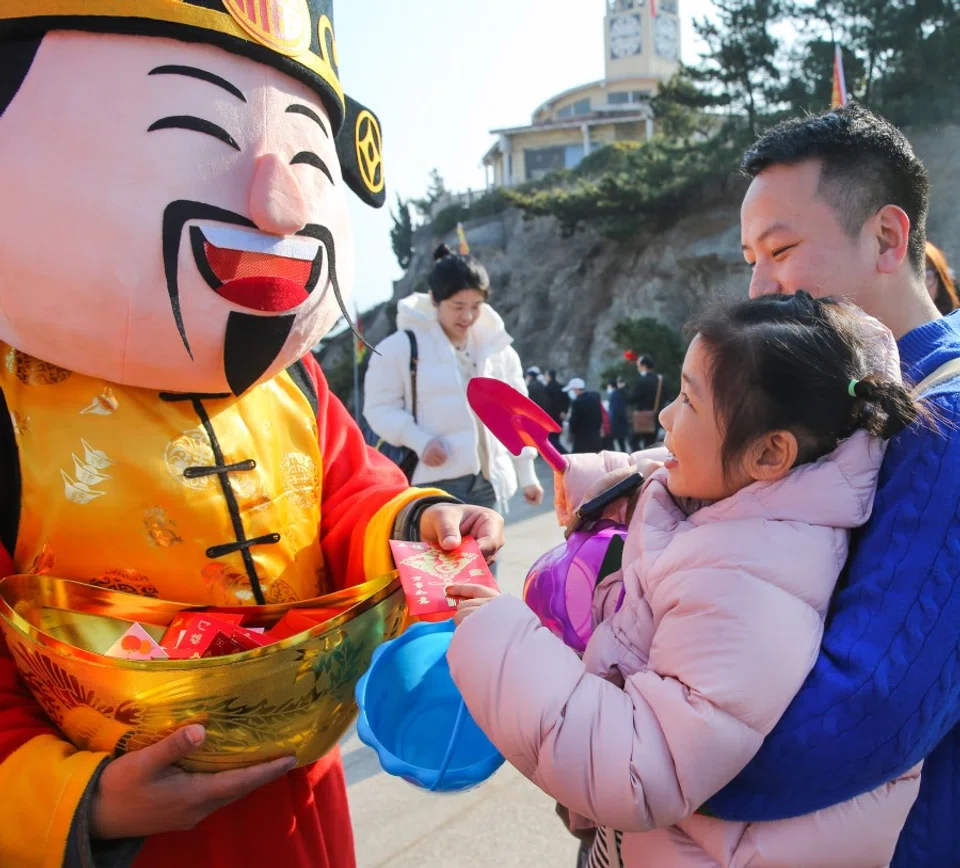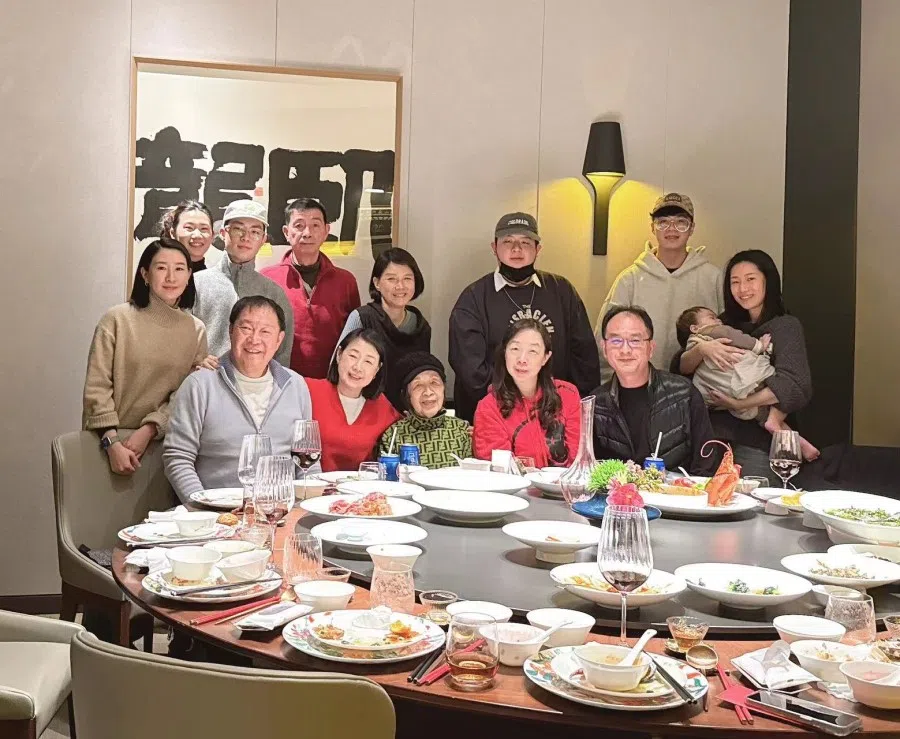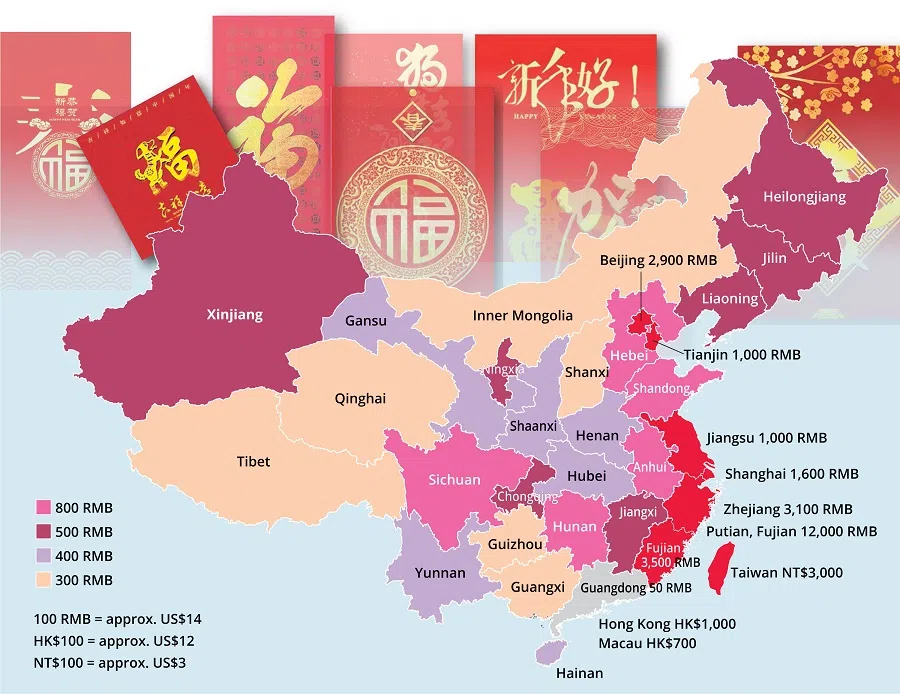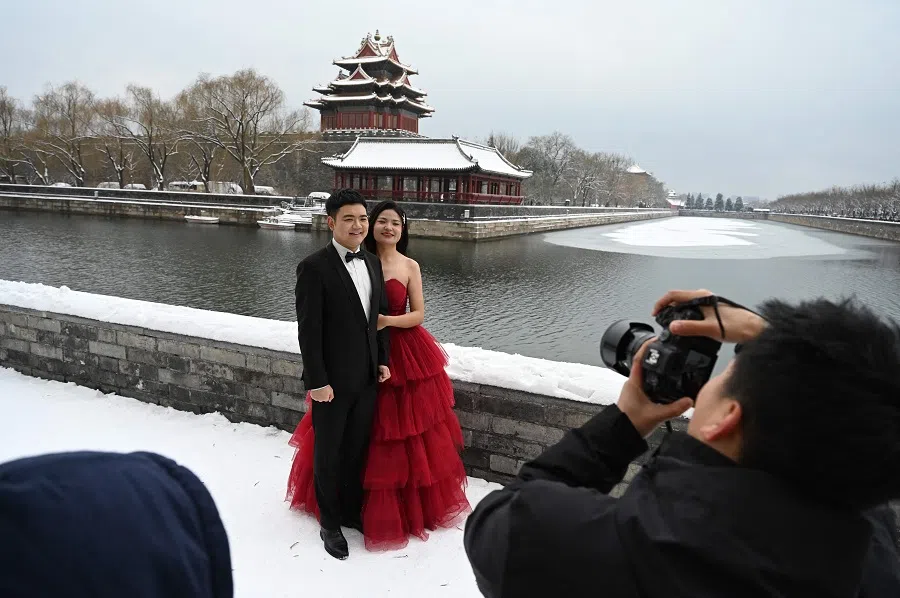Rising hongbao rates are putting pressure on Chinese youths
As China's tradition of giving red packets or hongbaos during festive occasions puts young people under pressure, they are pushing back by giving fewer hongbaos or none at all, hoping that their refusal to conform will help to bring the focus back to the sentiment behind the giving.

It is that time of year again for giving and receiving red packets, or hongbao.
Giving hongbaos is an indispensable part of the Chinese New Year tradition, but in recent years, this practice has fallen out of favour with young people in China.
In the past weeks, Weibo has been trending with topics such as "year-end bonus all gone after giving out Chinese New Year hongbaos", "Chinese New Year hongbao amounts are now on par with my monthly salary", and "I don't want to give too little, yet its painful to give more".
Post-95s and post-2000s going their way
Chinese media reported that a young woman born after 1995 in a rural area in Yuyao, Zhejiang province, lamented that it is no longer enough to just prepare 200 RMB (about US$28) per hongbao. The going rate now is at least 600 RMB, or easily in the thousands, which puts a lot of pressure on her and her peers.
She and her husband have to give hongbaos to their relatives' children - seven on her side and five on her husband's side, totalling 7,200 RMB at 600 RMB each. As they have no children of their own, "it's a one-way expense every year".
Many netizens sympathised with her grievance. Some commented that hongbao rates for children start at 1,000 RMB, while others complained about having given away 17,000 RMB in hongbaos during the Chinese New Year.
... the post-2000s generation, who grew up in the internet culture, have decided to rectify hongbao gifting, most likely by giving fewer hongbaos or none at all.

Amid the criticism from young people about hongbaos, an article titled "Post-2000s Rectify New Year Hongbao Gifting" (00后整顿过年红包) has been circulating online during the Chinese New Year period.
The article says that like "rectifying the workplace", the post-2000s generation, who grew up in the internet culture, have decided to rectify hongbao gifting, most likely by giving fewer hongbaos or none at all.
The article quoted one post-2000s individual from Beijing who said that he and his childhood friends have agreed not to give hongbaos to one another's parents or children, or cash as wedding gifts if they get married.
Another post-2000s person said that besides grandparents, her children do not accept hongbaos from anyone else, especially relatives they rarely interact with.
However, these "rectification efforts" have not gone smoothly, as traditional parents think that they are losing face and favour due to their children's resistance to hongbaos.
"We failed to rectify hongbao gifting and got criticised by our parents instead" has also become a hot topic on Weibo. But some netizens commented that "the older generation should work to 'gain face' instead of relying on their children".
Another popular comment was: "As a post-90s person, I prefer to go my own way and dissociate from relatives."
Guangdong ranked at the bottom with 50 RMB, which was described as a breath of fresh air. Meanwhile, Fujian topped the list at 3,500 RMB, with Putian attracting attention with its going rate of 12,000 RMB.
Guangdong's 'lai see' sets an example
Amid complaints and grievances of young people about hongbaos, the public WeChat account of state media outlet People's Daily commentary section ran a piece on 12 February urging people to avoid making hongbao gifting a source of pressure and burden.
The article said that hongbaos are meant to be part of the festive atmosphere, and the amount given is not a measure of closeness in relationships. People should give within their means and not follow trends or go overboard.
The article also specifically mentions that in many places in Guangdong, giving "lai see" (利是, lit. good luck) focuses more on the sentiment than the amount, with 5 or 10 RMB being considered sufficient to convey the thought.

Another article by the public WeChat account of official media Voice of China (中央广电总台中国之声) on 13 February also cited Guangdong's lai see culture as an example that everyone can learn from.
The article said Guangdong's hongbaos are not subject to "involution", and 50 RMB is considered a "huge sum", bringing "a breath of fresh air to the hongbao world".
A map showing the amounts given in hongbaos in the various regions of China was circulated online two years ago. Guangdong ranked at the bottom with 50 RMB, which was described as a breath of fresh air. Meanwhile, Fujian topped the list at 3,500 RMB, with Putian attracting attention with its going rate of 12,000 RMB.
... behind the culture of hongbao gifting is Chinese society's deep-rooted and complicated human relations and networks.
Responding to the controversy and public opinion sparked by hongbaos, Wang Zhongwu, a sociology professor at Shandong University, told China News Service in a recent interview that relevant departments could introduce a guideline modelled after the measures implemented to curb extravagant wedding and funeral ceremonies to create a "soft" restraint on hongbao gifting.
The article also quoted the nine measures pertaining to the do's and don'ts of social gatherings and festivities published by Jiangsu's Suqian city in 2020, which urged people not to forget the original intention of the hongbao and not to spoil the children, adding that a kind gesture of 100-200 RMB is enough lest people go into debt because of the tradition.
Opting for alternative gifts or no gifts at all
Yet behind the culture of hongbao gifting is Chinese society's deep-rooted and complicated human relations and networks. This is difficult to put into words and can hardly be completely changed with a mere guideline or initiative.

In fact, youths are not only burdened with the symbolic hongbaos given during the Chinese New Year, but also pressured by those given during weddings and births.
China's National Day Golden Week holiday is often the wedding season as well. Last October, a netizen shared that they attended seven weddings over the eight-day holiday, lamenting that the month's salary might as well be directly paid to their friends who were getting married during the holiday.
Topics such as "Monthly salary of 20,000 RMB still not enough to give wedding hongbaos"; and "Woman laments that nearly 3,000 RMB of her 5,000 RMB monthly salary went to wedding hongbaos" even became top searches on Weibo.
A survey released last October by the social survey centre of Chinese state media China Youth Daily, in conjunction with wenjuan.com, found that 93.2% of surveyed youths are burdened by the need to give hongbaos during major celebrations and social gatherings, of which 51.2% of them think that there are both financial and relational burdens.
That same month, the China Youth Daily said in an article that the younger generation has developed psychological and financial stress due to these hongbaos, with some feeling troubled by people who receive a hongbao from them but do not reciprocate the gesture. Many youths are also saying "no" to unreasonable hongbao gifting, proposing new ideas and methods.

Netizens revealed that some youths are using "mutual exemption cards" (互免卡) in place of monetary gifts, a move some netizens lauded as "the greatest invention of the 21st century". However, this method only applies to people who have close relationships with one another.
Apart from this, some young netizens even proposed gifting lottery tickets to replace cash, saying that the hongbao would be an enormous one if the recipient wins the grand prize.
... comparison culture has led to increasing hongbao rates, which has taken a financial toll on youths who have just entered the workforce and do not have deep pockets.
Complex tradition and interpersonal interactions
In China's complex web of social relationships, hongbaos are not only a custom but also a way of socialisation. In particular, the hongbao given during the Chinese New Year - which conveys care and blessings to the younger generation, as well as respect and filial piety to the elders, through auspicious symbolisms - is an important way to maintain the Chinese family system.
But as the post-95s and post-00s start to focus more on their self-worth and personal well-being, the significance of gifting hongbaos is dwindling. They are increasingly reluctant to waste time and energy on cumbersome traditions and complex interpersonal interactions.
Meanwhile, comparison culture has led to increasing hongbao rates, which has taken a financial toll on youths who have just entered the workforce and do not have deep pockets. In particular, with record high youth unemployment rates over the past two years and an overall sluggish economy, youths may not have the ability to spare too much cash on hongbaos even if they wanted to.
Besides, when such traditions get mixed with the dregs of culture like face and vanity, it not only burdens the youths but also somewhat erodes the original intention of something that is meant to be a beautiful blessing.
This article was first published in Lianhe Zaobao as "中国年轻人整顿红包市场?".





